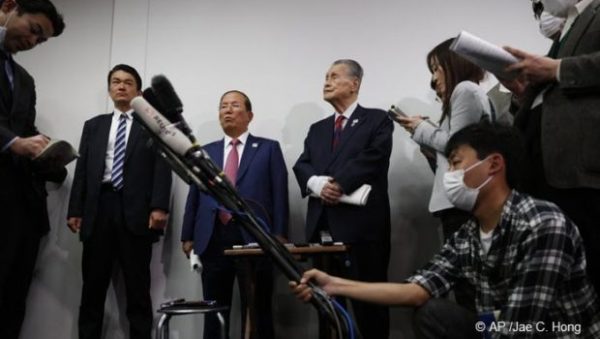Published on March 4th, 2020
The structure of the Olympic Games is an interesting dynamic. The International Olympic Committee (IOC) holds all rights to the event, and then selects a city to be the host organizer based on their bid proposal. This is the honeymoon stage, and as we know honeymoons don’t last forever.
Unlike the Rio 2016 Games, the build-up toward the Tokyo 2020 Games has been relatively clear of controversy. We say relatively, as when it comes to host drama and the Olympics, we’re always grading on the curve. After all the drama from Rio, Tokyo was the teacher’s pet.
But Tokyo was not getting a full pass. The cost for travel and accommodations are absurd, the anticipated staggering heat has caused consternation, and pollution in Tokyo Bay may prove disruptive. While all that is manageable, the COVID-19 virus is now testing the love between the IOC and Tokyo Organizing Committee (TOC).
While the IOC has expressed its full commitment to the success of the Olympic Games Tokyo 2020 on July 24 to August 9, the IOC has not appreciated how the TOC is depicting the terms of their agreement.
When Japan’s Olympic minister Seiko Hashimoto said the contract to hold the Tokyo Games only specifies the event has to be held during 2020, and that the IOC has the right to cancel the games only if they are not held during 2020, that got the ire of the IOC.
The IOC is disagreeing with how the TOC is explaining the agreement, contending the 81-page “Home City Contract” signed in 2013 provides wide latitude to terminate. While the modern Olympics have been canceled only three times, all during wartime, this health issue is proving to be a battlefield.
The international virus outbreak has everyone on edge, and the World Health Organization will be relied on to determine if the games must be postponed or cancelled. But when money is involved, nothing is simple.
According to AP reporter Stephen Wade, 73% of IOC income is from broadcast rights, and the NBC network is half of that. Furthermore, Eric Fisher, U.S. Editor for SportBusiness Group, reports that NBC Sports has surpassed $1.25 billion in ad sales for Tokyo 2020, and has set a new Olympics sales record.
Whether the coronavirus outbreak lives us to the attention it is receiving, to the extent that it impacts the Olympic Games, will make the next few months very interesting. Standing by for good news.
TOKYO 2020 Sailing Program
Men’s One Person Dinghy – Laser
Women’s One Person Dinghy – Laser Radial
Men’s Two Person Dinghy – 470
Women’s Two Person Dinghy – 470
Men’s Skiff – 49er
Women’s Skiff – 49erFx
Men’s One Person Dinghy Heavy – Finn
Men’s Windsurfing – RS:X
Women’s Windsurfing – RS:X
Mixed Multihull – Nacra 17
Olympic schedule: July 24 – Aug 9
Sailing schedule: July 26 – Aug 6
Details: https://tokyo2020.org/en/games/schedule/olympic/








Recent Comments